- Shifting Tides: Navigating today’s news landscape to understand accelerating global transformations and build resilience for tomorrows challenges.
- The Acceleration of Global Interdependence
- The Role of Technology and Digital Platforms
- Geopolitical Shifts and their Impact on Information Flows
- Building Resilience in a Changing World
- The Importance of Media Literacy
- Fostering International Cooperation
Shifting Tides: Navigating today’s news landscape to understand accelerating global transformations and build resilience for tomorrows challenges.
In an era defined by rapid change and interconnectedness, understanding the current news and the forces shaping our world is more critical than ever. The sheer volume of information available can be overwhelming, requiring individuals to develop robust skills in critical thinking and media literacy. This article delves into the shifting landscape of information consumption, examining the accelerating global transformations and outlining strategies for building resilience in the face of ongoing challenges. We will explore how technology, geopolitics, and economic factors intertwine to create a complex and dynamic global environment, ultimately impacting individuals, communities, and nations alike.
The ability to discern credible information from misinformation is a paramount skill in the 21st century. The proliferation of social media and online platforms has democratized access to information but has also created fertile ground for the spread of false narratives and biased reporting. Navigating this complex terrain requires a proactive and informed approach, emphasizing fact-checking, source evaluation, and a willingness to consider multiple perspectives. This article seeks to empower readers with the knowledge and tools necessary to navigate this evolving information ecosystem effectively.
The Acceleration of Global Interdependence
The world is becoming increasingly interconnected, not just through technology but also through economic, political, and social forces. This heightened interdependence creates both opportunities and vulnerabilities. Global supply chains, for instance, enable efficient production and distribution but also expose vulnerabilities to disruptions – as witnessed during recent geopolitical events and the COVID-19 pandemic. Understanding these complex relationships is essential for anticipating potential risks and building more resilient systems. The rapid flow of capital, information, and people across borders has fundamentally altered the dynamics of power and influence, requiring a re-evaluation of traditional notions of sovereignty and national security. This interconnectedness demands a collaborative approach to addressing global challenges, fostering international cooperation, and promoting shared responsibility.
| Global Trade Volume | $19.2 trillion | $24.8 trillion | 29.17% |
| Foreign Direct Investment | $1.4 trillion | $1.6 trillion | 14.29% |
| International Tourism | 1.4 billion | 1.2 billion | -14.29% |
The Role of Technology and Digital Platforms
Technology, particularly the internet and social media, has profoundly impacted the way we consume and share information. While offering unprecedented access to knowledge and enabling global communication, these platforms also present significant challenges. The spread of misinformation, echo chambers, and algorithmic bias can distort perceptions and undermine public trust. Furthermore, concerns about data privacy, cybersecurity, and the ethical implications of artificial intelligence are gaining prominence. Addressing these challenges requires a multi-faceted approach, including media literacy education, regulation of online platforms, and the development of ethical frameworks for the use of technology. Encouraging responsible digital citizenship and fostering a critical mindset are crucial for mitigating the negative consequences of technological advancements.
Moreover, the rise of artificial intelligence introduces both opportunities and risks. AI-powered tools can automate tasks, analyze vast datasets, and provide valuable insights, but they also raise concerns about job displacement, algorithmic bias, and the potential for misuse. Developing robust ethical guidelines and regulatory frameworks is essential to harness the benefits of AI while mitigating its potential harms. Transparency, accountability, and fairness must be central to the development and deployment of AI systems to ensure they serve humanity’s best interests.
The future of information consumption will likely be shaped by emerging technologies such as virtual reality and augmented reality, which have the potential to create immersive and interactive experiences. However, these technologies also raise new questions about authenticity, manipulation, and the boundaries between the physical and digital worlds. Continued research and critical analysis are vital to understanding the implications of these emerging technologies and ensuring they are used responsibly.
Geopolitical Shifts and their Impact on Information Flows
Significant geopolitical shifts are reshaping the global landscape and influencing the flow of information. Rising tensions between major powers, the emergence of new economic alliances, and the proliferation of conflicts all contribute to a more volatile and unpredictable world. These shifts have implications for media freedom, the spread of propaganda, and the use of information as a weapon. Countries are increasingly utilizing soft power strategies, including media outreach and cultural diplomacy, to shape global narratives and influence public opinion. Understanding the underlying geopolitical dynamics is essential for interpreting current news and assessing its credibility. The rise of non-state actors, such as terrorist organizations and cybercriminal groups, also poses new challenges to information security and global stability.
The increasing polarization of societies, both within and between countries, is further exacerbating these challenges. Political divisions, ideological clashes, and economic inequalities are creating echo chambers and reinforcing existing biases. This polarization makes it more difficult to engage in constructive dialogue, find common ground, and address shared challenges. Strengthening democratic institutions, promoting inclusivity, and fostering a culture of respect are essential for overcoming polarization and building more resilient societies. A diverse and independent media landscape is crucial for providing alternative perspectives and challenging dominant narratives.
The ongoing conflicts and humanitarian crises around the world highlight the importance of accurate and impartial reporting. Journalists often face significant risks, including censorship, threats, and violence, in their efforts to document and report on these events. Supporting independent journalism and protecting the safety of journalists is vital for ensuring that the world is informed about the realities on the ground and for holding those responsible for human rights violations accountable.
Building Resilience in a Changing World
Navigating the complexities of the modern world requires building resilience – the ability to adapt, overcome challenges, and thrive in the face of adversity. This involves cultivating a range of skills and qualities, including critical thinking, problem-solving, adaptability, and emotional intelligence. Individuals must also develop a strong sense of self-awareness, ethical values, and a commitment to lifelong learning. Building resilience is not just about individual preparedness; it also requires strengthening communities, fostering social cohesion, and creating more equitable and just societies. Investment in education, healthcare, and social safety nets is essential for building resilient communities that can withstand shocks and adapt to change.
- Cultivate Critical Thinking Skills
- Diversify Information Sources
- Promote Media Literacy
- Encourage Open Dialogue
- Support Independent Journalism
The Importance of Media Literacy
Media literacy is the ability to access, analyze, evaluate, and create media in a variety of forms. It is an essential skill for navigating the complex information landscape and discerning credible information from misinformation. Media literacy education should be integrated into school curricula at all levels, empowering students to become informed and responsible digital citizens. Furthermore, lifelong learning opportunities should be available to adults to help them stay abreast of emerging trends and technologies. Media literacy is not just about spotting fake news; it is about understanding the underlying biases, motivations, and techniques used to influence public opinion. It also involves being aware of one’s own cognitive biases and seeking out diverse perspectives.
Effective media literacy programs should focus on developing skills in fact-checking, source evaluation, and recognizing manipulative techniques. They should also encourage students to question assumptions, challenge narratives, and think critically about the information they encounter. Promoting media literacy requires collaboration between educators, journalists, librarians, and community organizations. It is a collective responsibility to ensure that individuals have the skills and knowledge necessary to navigate the information age effectively. Understanding how algorithms shape our online experiences and reinforcing critical thought is also vital.
The role of libraries is increasingly important in promoting media literacy. Libraries provide access to a wide range of resources, including books, journals, and online databases, as well as offering educational programs and workshops. Librarians play a crucial role in helping individuals develop the skills necessary to evaluate information and navigate the digital world. Supporting libraries and investing in their resources is essential for fostering a well-informed and engaged citizenry.
Fostering International Cooperation
Addressing global challenges requires international cooperation and a shared commitment to multilateralism. No single nation can effectively address issues such as climate change, pandemics, or economic inequality alone. Strengthening international institutions, promoting diplomacy, and fostering collaboration are essential for building a more peaceful and sustainable world. International cooperation also includes sharing best practices, exchanging knowledge, and providing assistance to countries in need. However, international cooperation is often hampered by political tensions, national interests, and differing priorities. Overcoming these obstacles requires a willingness to compromise, build trust, and prioritize the common good.
- strengthen diplomatic ties
- Invest in international organizations
- Foster cultural exchange programs
- Promote Free Trade
- Support global health initiatives
The rise of populism and nationalism in many countries poses a threat to international cooperation. These movements often prioritize national interests over global concerns and advocate for isolationist policies. Countering these trends requires advocating for the benefits of globalization, promoting understanding and empathy, and building bridges between cultures. A strong and effective international system is essential for addressing global challenges and ensuring a more peaceful and prosperous future for all. Recognizing shared vulnerabilities and the interconnectedness of global systems is paramount to survival.
Furthermore, international cooperation is essential for addressing the challenges posed by emerging technologies. AI, biotechnology, and other disruptive technologies have the potential to create both opportunities and risks. Developing international norms and standards is vital to ensure that these technologies are used responsibly and ethically. Collaboration between governments, industry, and academia is essential for fostering innovation while mitigating potential harms.
As the world continues to evolve at an unprecedented pace, staying informed and adaptable is no longer a luxury but a necessity. Building resilience requires a commitment to lifelong learning, critical thinking, and a willingness to embrace change. By cultivating these qualities, individuals and communities can navigate the complexities of the modern world, overcome challenges, and create a more sustainable and equitable future for all. The interconnectedness of global systems demands a collaborative and holistic approach to problem-solving, recognizing that our collective well-being is inextricably linked.

